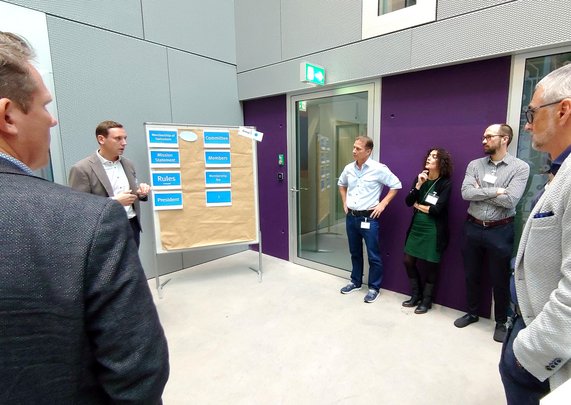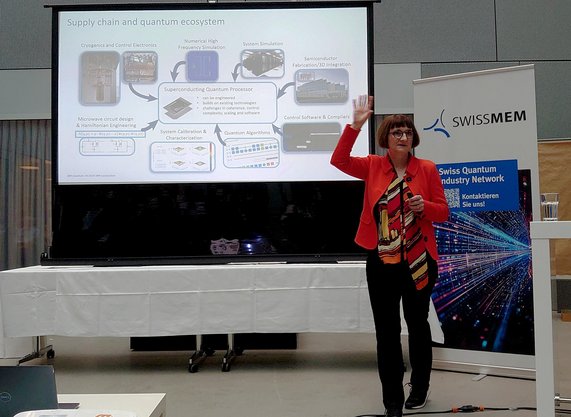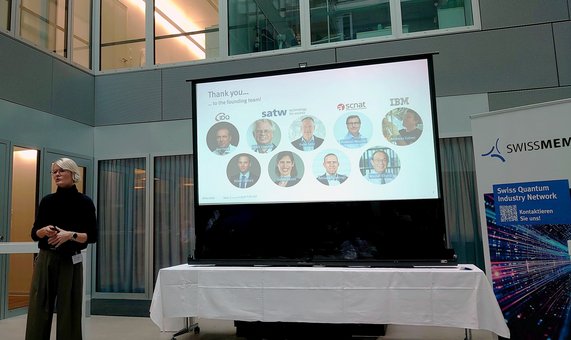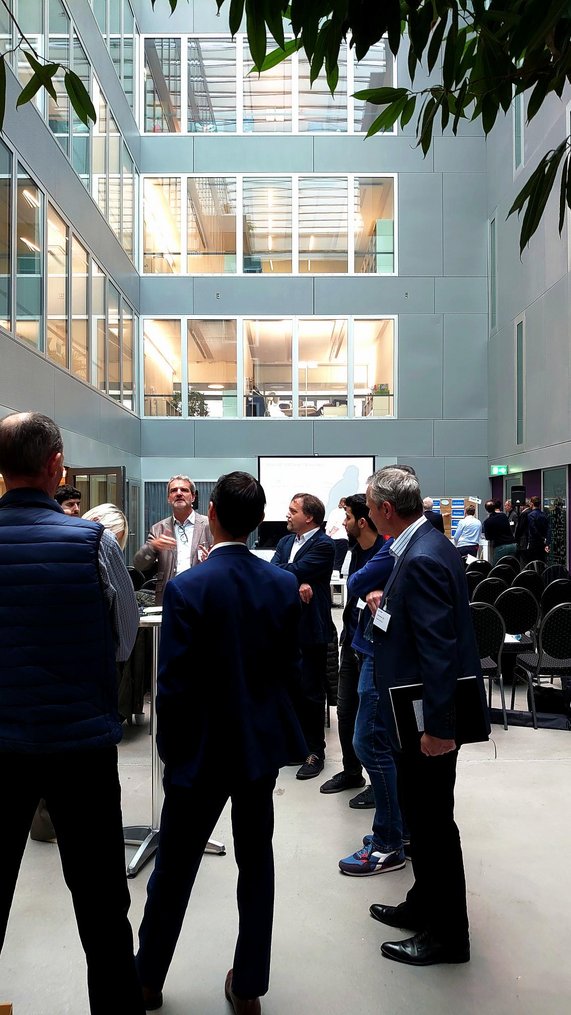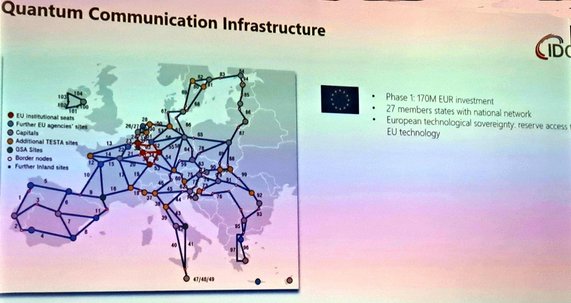Switzerland has been an international pioneer in the field of quantum technologies for decades and has built up a wealth of research and manufacturing expertise. It is time to make better use of and profit this valuable economic ecosystem, said Dr Adam Gontarz, Head of Digitalisation, Innovation and Technology at Swissmem, at the SQIN kick-off at Swissmem's headquarters in Zurich.
Dr Jean-Philippe Kohl, Deputy Director and Head of Economic Policy, reiterated Swissmem's strategy of providing a central and neutral exchange platform for all types of quantum technologies in Switzerland - now all interested parties are invited to create the actual framework conditions and rules for this.
Heike Riel, Head of Science of Quantum and Information Technology at IBM, encouraged the participants to work together at various levels in order to solve important upcoming problems and discover new areas with quantum technologies. In view of rapid developments and increasing competition, applications and infrastructure need to be even better harmonised. Using the latest quantum computers - fast, scalable, modular - she showed how IBM could help to achieve this. Quantum technology users do not need to be quantum experts, she pointed out.
Grégoire Ribordy, co-founder and CEO of ID Quantique, described how an idea turned into a successful quantum technology company within 23 years, which is a leader in quantum computer-secure cryptography, among other things. Quantum technology is here to stay, but exaggerated marketing promises (so-called ‘quantum washing’ in the style of greenwashing) should not be believed. Ribordy also warned that Switzerland must become part of the Horizon Europe research network again as quickly as possible. We could not afford to miss the boat - literally: the European Quantum Communication Network is currently being set up, bypassing the Swiss Confederation.
Stefan Buff, VP and Market Manager Medical at Huber+Suhner, explained about the opportunities and risks that a Swiss SME faces when entering the world of quantum technology. For example, is not easy to convince management to make investments that may only pay off in 3 or 5 years. In addition, quantum technology is often challenging and unfamiliar territory. It sometimes felt like riding a wild bull, he admitted. With a twinkle in his eye, he wished for less rodeo and more connections in the quantum technology environment.
Ann-Kathrin Michel, Swissmem manager for technology and head of SQIN, led the participants through the workshop, where opinions and answers to various questions were collected, including: What could SQIN look like in organisational terms? Which activities and committees would be useful? What benefits can the network members expect from the collaboration? Who could be involved, for example related industrial sectors such as microelectronics or photonics?
The first green shoots should sprout from the seed of this kick-off by spring 2025.
SATW board members Dr Ulrich Claessen and Prof Peter Seitz lauded the presentations, topics and questions raised during the quantum industry kick-off. SATW sees itself as a supporter in the transfer of expertise between industry and research, particularly with the SATW Industry Advisory Board and its relationships with SCNAT, as well as the Swiss Quantum Initiative (SQI), which was launched in 2023 and with which the Federal Council aims to strengthen Swiss research and innovation in the field of quantum science.
